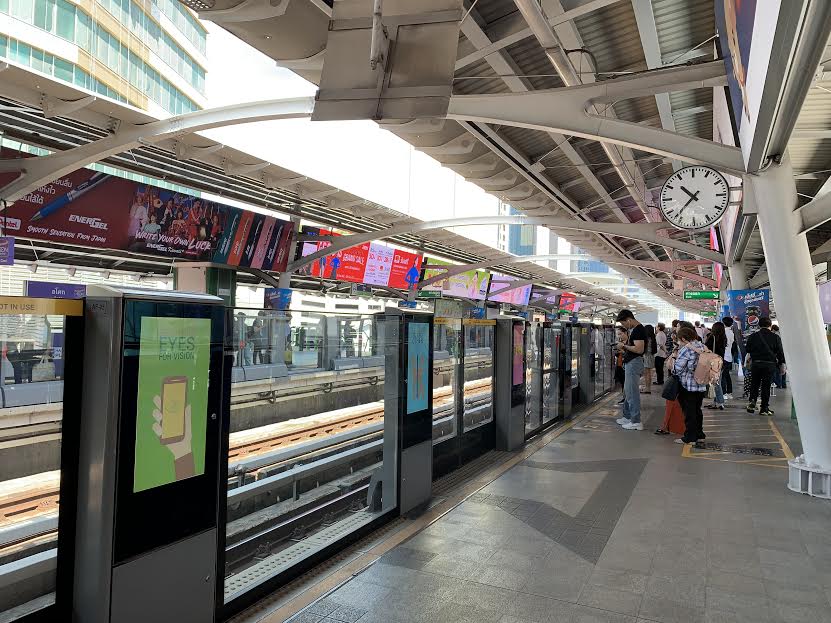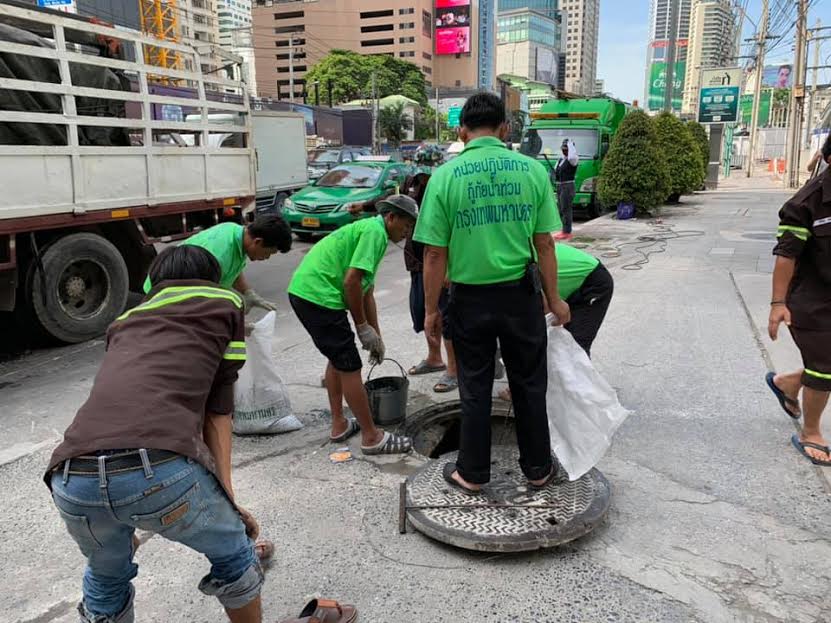Our trip back from the ancient Thai capital of Ayutthaya to Bangkok last week was an eye-opener for first-timers in Bangkok. We were eighty archaeologists from many countries stuck for almost an hour in a traffic jam that began just a few minutes after we entered Bangkok.
Those years of patiently and quietly digging the soil, brush and trowel in hand, looking for even a wee bit of evidence of the past, apparently paid off. Not a single complaint was heard. Or were we all well informed to expect this? I did. My brother told me to skip Bangkok altogether and go to Chiang Mai. My nephew, also no stranger to Bangkok, showed me a website declaring Bangkok at the top of the cities with the worst traffic in the world, second only to Los Angeles.
(Unfortunately, I could not avoid Bangkok as I was there for the third triennial international conference in Southeast Asian archaeology organized by Bangkok-based Southeast Asian Regional Center for Archaeology and Fine Arts (SPAFA), which is a body under the Southeast Asian Ministers for Education Organization).
Over the last two decades, when it became clear by the mid-1990s that Bangkok’s traffic was worsening by the day, a massive transport infrastructure development program was pursued. Elevated highways rose up together with a mass public transit system comprising buses an underground rail transit system and an elevated one called the Skytrain. I took the Skytrain in most of trips around the city and it was super-efficient.

The Skytrain arriving at Phaya Thai Station.
But therein lies the rub: despite all these, Bangkok is still the city with the worst traffic jams in the world. According to one estimate, Bangkok drivers spent an average of 64.1 hours per year stuck in a traffic jam.
Cebu as much as Manila and other rapidly-developing cities must take heed at what Bangkok observers note regarding their traffic woes that happen even on Sundays. First, a cursory observation of the streets we went through during our trip back to the hotel made it clear that Bangkokians have an obsession with private cars. This will be the main problem Cebu will face should a rail system be put in place: how many car owners will opt out of driving their beloved private vehicles in favor of hobnobbing with strangers in an underground or above-ground train?

Commuters waiting for the Skytrain at Phong Phom Station.
The second observation, and this is also mentioned in many blogs about Bangkok’s nightmarish traffic, is bad driving, especially those on motorcycles. Whether in Bangkok or in Cebu, bad driving can be seen in many ways but they can be summed up in two: not following traffic rules and driving too slow in a fast lane. The latter is the number one problem we often encounter at the SRP expressway, made worse by drivers who do not seem to know what those yellow signal lights on their cars are meant for, using them only when they are about to turn or already turning!
(Cebu has a third problem, one that happens when driving at night, that I cannot seem to understand why this is tolerated by the Land Transportation Office: big trucks, including cement mixers and haulers have glaring lights beamed high and mighty on drivers wanting to overtake them. I have never seen this in all my travels abroad. Someone has to explain to me why this is tolerated or even allowed. That pesky iris-burning light, at best, should be softer and beamed not on cars behind, if the reason is safety and visibility, but on the body of the truck itself.)
Singapore (here we go again!) found a solution to the problem of private car congestion last year: it limited the purchase of private cars by creating a whole lot of requirements. It also eliminated many old cars from its road network.
As regards bad driving, I do not know what the Thai transport authorities have done but, as one blog pointed out, it is a problem concerning social values or, more bluntly, selfishness. If the issue is social, then it will most probably have to do with upbringing and early childhood learning. There might yet be a solution lurking somewhere in the kindergarten to Grade 3 levels of our own educational system. Perhaps all these good-manners-and-right-conduct lessons should include behavior on the road.

Bangkok’s city workers removing silt from a drain and placing them in sacks.
Let me end with one good thing about Bangkok (and there are many, many more good things about the city): I did not see any garbage piles or heaps anywhere. What I chanced to see, in fact, was a group of city workers removing silt from a drainage canal in anticipation of the rainy season. And instead of just leaving the foul-smelling silt on the sidewalk, they immediately placed these in white-colored sacks for removal by a small truck later. Two things were immediately solved: no need to bring in heavy equipment as the laborers did the de-silting themselves and no need for a dumptruck to cause a traffic jam while removing the silt. Surely we can do this in Cebu.
Disclaimer: The comments uploaded on this site do not necessarily represent or reflect the views of management and owner of Cebudailynews. We reserve the right to exclude comments that we deem to be inconsistent with our editorial standards.

